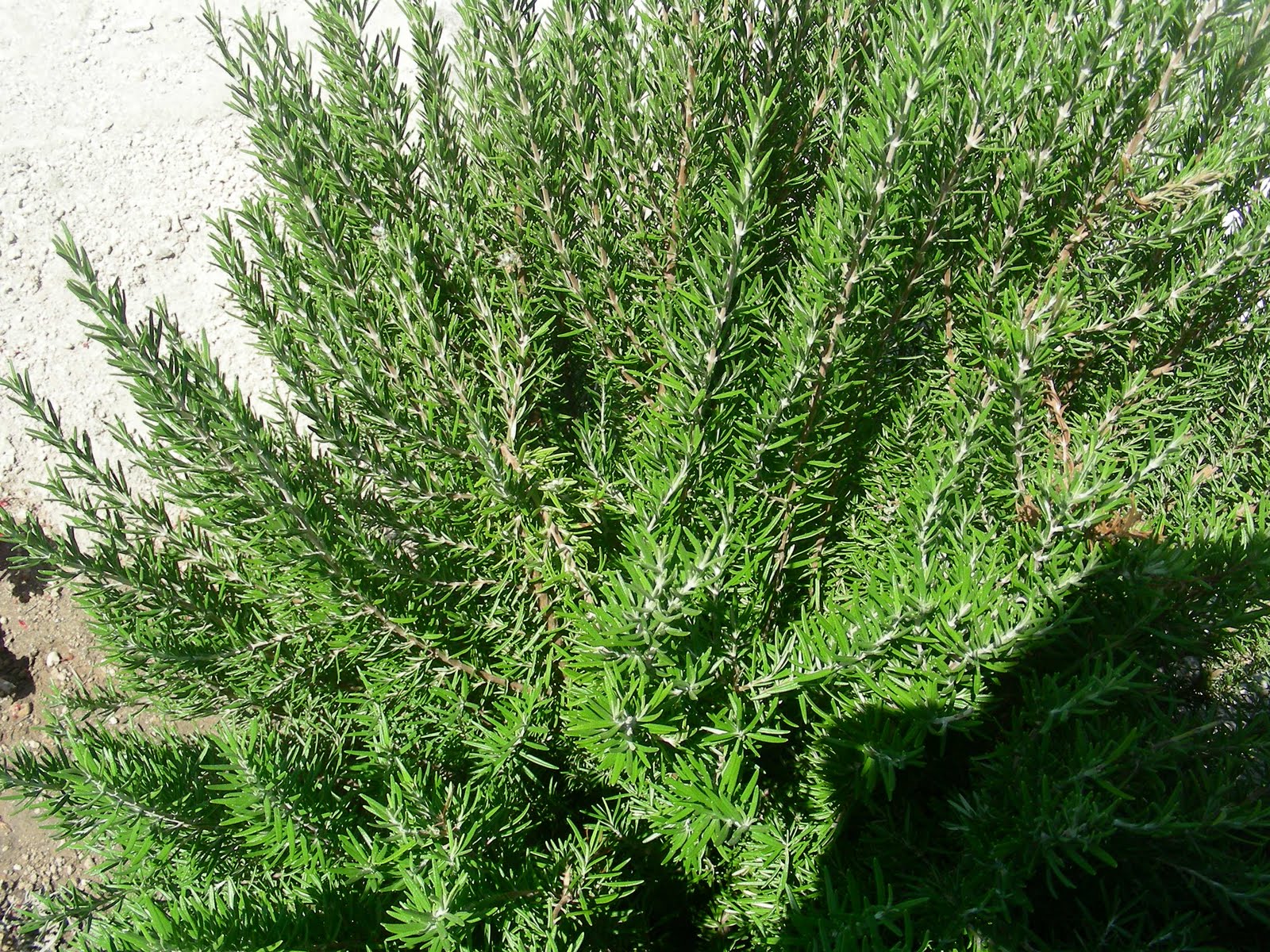Rosemary
Botanical Name: Rosmarinus officinalis
Plant Family: Labiatae
Common Names: Compass Plant, Compass Weed, Polar Plant, Romero, Rosmarinus coronarium
History: The name Rosemary comes from the Latin Ros marinus which means 'sea-dew' or 'fond of the sea'
It was customary to burn Rosemary with Juniper Berries to purify sick rooms in French hospitals
It was mentioned in the old Anglo-Saxon Herbals of the 11th Century
The Spaniards revere it as one of the bushes that gave shelter to the Virgin Mary in the flight into Egypt and call it Romero, 'the Pilgrim's Flower'.
The ancients used the herb for strengthening the memory
Tradition: Rosemary
if drunk is said to do away with all body evil
is considered a safeguard from witches and evil influences in both Spain and Italy
is the Herb of Remembrance and Friendship
leaves were placed under your pillow dispel evil spirits and bad dreams
was the emblem of fidelity for lovers
was grown to attract elves
was hung on porches and doors keeps thieves out
was used at both weddings and funerals
was used as incense in magical spells
was used as incense in religious ceremonies
was used for protection and banishment
Plant Constituents of Rosemary
Contains:
bitter principle
resin
tannic acid
A volatile oil consisting of:
Borneol
Bornyl Acetate
camphene
cineol
esters
pinene
special camphor similar to that in the Myrtle plants
Action:
anti-bacterial [an agent that destroys bacteria; bactericide]
anti-fungal [an agent that destroys fungal conditions]
antioxidant [contributing to the oxidation of free radicals which are believed to contribute to premature aging and dementia]
antiseptic [an agent for inhibiting the growth of microorganism on living tissue or destroying pathogenic or putrefactive bacteria]
antispasmodic [an agent which relieves or eases muscular spasms, cramps or convulsions]
astringent [a binding agent that contracts organic tissue, reducing secretions or discharges of mucous and fluid from the body]
cholagogue [an agent for increasing the flow of bile into the intestines]
diaphoretic [an agent that promotes perspiration]
emmenagogue [an agent that promotes menstrual flow]
sedative [a soothing agent that reduces nervousness, distress or irritation]
stimulant [an agent that excites or quickens the functional activity of the tissues giving more energy]
stomachic [an agent that strengthens, stimulates or tones the stomach]
tonic [an agent that tones, strengthens and invigorates organs or the entire organism giving a feeling of well-being]
Usage of Rosemary
Medicinal Parts Used: Herb, root, oil (obtained from flowering tops)
Rosemary is used for:
Brain and Nervous System Conditions
general debility after long-term nervous or physical illness
improves the memory
insomnia
mental fatigue
nervous anxiety and tension
nervous depression (tea taken warm)
nervous disorders
restorative effect on the nervous system
soothes the nerves
stimulates the brain and nervous system
tension headaches
migraines
Cardiovascular Conditions
improves circulation
raises blood pressure
stimulates the circulatory system
weak heart subject to palpitation (in small doses)
Gastrointestinal Conditions
bad breath (mouthwash)
upset stomachs
promotes proper digestion
toning and calming effect on the digestion
Genitourinary Conditions
dropsy
Female Conditions
regulates the menstrual cycle
Liver Conditions
promotes liver function
promotes the production of bile
Reproductive System Conditions
stimulates the sexual organs
Respiratory System
colds
colic
Other
eases cramps
expels morbid matter from the system
failing eyesight
headache (tea taken warm, with Peppermint and Chamomile tea)
Externally it is used to treat:
bites
stings
In aromatherapy the essential oil is used:
as a decongestant
as an inhalant
for exhaustion (6 drops Rosemary Oil in bathwater)
for headaches
to enhance memory and clear concentration
The oil is used in oils/lotions for:
arthritis
bruises
eczema
gout
muscular pain
neuralgia
revitalizing paralyzed limbs
rheumatism
rheumatoid arthritis
sciatica
scrofulous sores
wounds
and rubbed into hair
for stimulating the hair bulbs to renewed activity
to prevent premature baldness
Other Uses:
Perfume in ointments, shampoos and soaps
The flowers if laid in clothes cupboards destroys moths
The leaves if crushed into meats, fish, potato salads, etc. can help prevent food poisoning
Oil:
carminative [an agent for easing griping pains, colic and expelling gas from the intestines]
nervine [an agent that has a calming or soothing effect on the nerves, any agent that acts on the nervous system to restore the nerves to their natural state]
rubifacient [a gentle local irritant that produces blisters, inflammation and reddening of the skin]
stomachic [an agent that strengthens, stimulates or tones the stomach]
Precautions
Caution:
Excessive amounts of Rosemary taken internally can cause fatal poisoning
Rosemary Oil may raise blood pressure levels when used in massage

 Cultivations
Cultivations 



